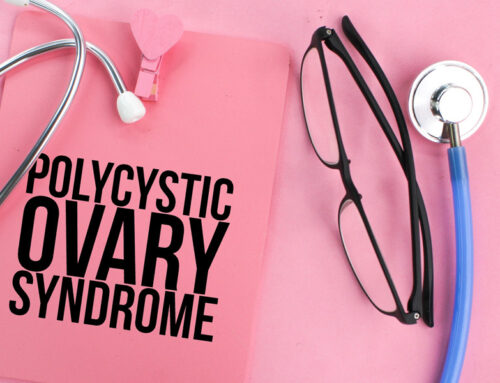Understanding the ovulation cycle is essential for anyone interested in reproductive health, whether you’re a medical professional, a student, or someone experiencing gynecological issues. This natural process, which plays a crucial role in fertility, can influence various aspects of a woman’s health and lifestyle. By delving into the intricacies of ovulation, from its biological underpinnings to practical implications, we aim to provide a comprehensive guide that answers questions like “when is ovulation?” and “what is ovulation?”
Whether you’re looking to conceive, seeking insights for educational purposes, or considering consulting an obstetrician in Jacksonville, Florida, this post will equip you with the knowledge to navigate and understand the nuances of the ovulation cycle. Request an appointment with your healthcare provider to discuss your specific concerns and ensure you’re ovulating healthily.
Understanding the Ovulation Cycle
The ovulation cycle is a complex and vital process in the realm of reproductive health. Grasping its nuances can greatly enhance one’s understanding of fertility and general well-being. This section will delve into what ovulation entails, the different phases of the cycle, and the factors that may impact this essential biological function.
What is Ovulation?
Ovulation is a critical phase in the menstrual cycle where a mature egg is released from the ovary. This process usually occurs around the midpoint of the cycle. A woman’s body prepares for this event by developing follicles in the ovaries, and typically, one follicle becomes dominant and releases an egg.
During ovulation, the egg travels down the fallopian tube, where it might meet sperm for fertilization. This window is essential for conception, making understanding ovulation pivotal for those trying to conceive.
Knowing what ovulation is can empower individuals to monitor their reproductive health better. By tracking ovulation, women can gain insights into their fertility patterns and make informed decisions about family planning.
Phases of the Ovulation Cycle
The ovulation cycle consists of several phases, starting with the follicular phase, which begins on the first day of menstruation. This phase is characterized by the growth of ovarian follicles stimulated by hormones such as FSH (Follicle-Stimulating Hormone).
Next, we have the ovulatory phase, a brief period where the mature egg is released. This phase is marked by a surge in luteinizing hormone (LH), triggering ovulation. The timing of this phase is crucial for those tracking fertility.
Finally, the luteal phase follows ovulation. If fertilization occurs, the body prepares for pregnancy. If not, hormone levels drop, leading to menstruation. Understanding these phases helps in identifying the best times for conception.
Factors Affecting Ovulation
Several factors can influence the ovulation cycle, ranging from lifestyle choices to underlying health conditions. Diet, exercise, and stress levels have a significant impact on hormonal balance, which in turn affects ovulation.
Conditions like polycystic ovary syndrome (PCOS) can disrupt the regularity of ovulation. Age is another factor, as fertility naturally declines with time, which can alter ovulation patterns.
Environmental factors, such as exposure to toxins, can also play a role. Understanding these influences can aid in managing and optimizing ovulation for reproductive health.
Signs and Symptoms of Ovulation
Recognizing the signs and symptoms of ovulation is beneficial for understanding one’s body and fertility. This section will guide you through identifying ovulation signs, common symptoms, and methods for tracking ovulation.

How to Know You’re Ovulating
To determine if you are ovulating, there are several methods one can utilize. Many women experience changes in cervical mucus, which becomes clearer and more stretchy during ovulation.
- Track Cervical Mucus: Observe changes in texture and color.
- Monitor Basal Body Temperature (BBT): A slight increase can indicate ovulation.
- Use Ovulation Predictor Kits: These detect hormonal changes signaling ovulation.
Tracking these changes can provide critical insights into when ovulation occurs, aiding in family planning and understanding menstrual health.
Common Symptoms of Ovulation
Common ovulation symptoms include mid-cycle cramping, often referred to as mittelschmerz. This pain can vary in intensity and is usually felt on one side of the abdomen.
Some women might notice breast tenderness or slight mood changes. Increased libido is another symptom, driven by the body’s natural inclination to conceive during this fertile window.
While symptoms can vary, being aware of these changes helps in identifying ovulation, contributing to better reproductive health management.
Tracking Your Ovulation
Tracking ovulation involves understanding patterns over time. Many opt for digital fertility monitors, which combine data like basal body temperature and hormone levels to predict ovulation accurately.
Apps can also help, offering a convenient way to log symptoms and cycle dates. This information can be valuable when consulting with healthcare providers.
Regular tracking not only aids in family planning but also in identifying any irregularities, prompting further investigation if necessary.
Importance of the Ovulation Cycle
The ovulation cycle is not only crucial for fertility but also has broader health implications. This section explores how ovulation links with fertility, its impact on overall health, and the importance of consulting healthcare professionals.
Ovulation and Fertility
Ovulation is central to fertility, as it marks the period when conception is possible. Understanding the timing can assist in maximizing the chances of pregnancy.
For those facing fertility challenges, monitoring ovulation can highlight irregularities. This knowledge aids in seeking appropriate medical interventions to enhance fertility.
Regular ovulation is a sign of hormonal balance, which can be pivotal in evaluating reproductive health and planning for a family.
Health Implications of Ovulation
The ovulation cycle reflects hormonal health, impacting more than just fertility. Regular cycles suggest balanced hormones, which contribute to overall well-being.
Irregular ovulation can signal health issues, such as thyroid disorders or PCOS. Recognizing the broader implications encourages proactive health management.
Monitoring ovulation helps detect potential health concerns early, allowing for timely intervention and better health outcomes.
Consulting an Obstetrician in Jacksonville, Florida
For personalized advice, consulting an obstetrician is recommended. They can offer insights into individual ovulation patterns and address specific concerns.
In Jacksonville, Florida, several clinics provide comprehensive reproductive health services. Discussing symptoms and patterns with a professional ensures tailored care.
Requesting an appointment with a healthcare provider allows for a deeper understanding of ovulation and its impact on health.
Managing Irregular Ovulation Cycles
Irregular ovulation cycles can be concerning, but there are ways to manage them effectively. This section covers causes, treatments, and when to seek medical advice.
Causes of Irregular Ovulation
Irregular ovulation can stem from various causes, including hormonal imbalances. Conditions like PCOS and thyroid disorders often disrupt regular cycles.
Stress and lifestyle factors, such as diet and exercise, also play a part. Significant weight changes, whether gain or loss, can impact regularity.
Understanding these causes is the first step in addressing irregular cycles, paving the way for suitable interventions.
Treatments and Solutions
Managing irregular ovulation involves identifying the underlying cause. Hormonal therapies are common, helping to restore balance and regularity.
Lifestyle modifications, such as stress reduction and dietary adjustments, can also aid in regulating cycles. Regular exercise contributes to better hormonal health.
Consulting healthcare professionals ensures a tailored approach, addressing individual needs and improving ovulation consistency.
When to Request an Appointment
If irregular cycles persist, it’s crucial to seek medical advice. Early intervention can prevent potential complications and improve fertility outcomes.
Persistent symptoms, such as severe pain or abnormal bleeding, warrant a consultation. These signs might indicate underlying health issues requiring attention.
Request an appointment with a healthcare provider to explore options and address concerns effectively.
FAQs and Common Concerns
Navigating the ovulation cycle can raise several questions. This section addresses common queries and concerns, providing clear and concise answers.
When is Ovulation?
Ovulation typically occurs around the middle of a menstrual cycle, about 14 days after the start of menstruation in a 28-day cycle. However, this can vary depending on individual cycle lengths.
Understanding your cycle’s unique timing involves tracking patterns over several months. This knowledge aids in predicting ovulation and optimizing fertility planning.
Each woman’s cycle can differ, making personalized tracking essential for accurate ovulation prediction.

Can Stress Affect Ovulation?
Stress significantly impacts hormonal balance, potentially disrupting the ovulation cycle. High stress levels can delay or prevent ovulation, affecting fertility.
Managing stress through techniques such as mindfulness or exercise can help maintain regular cycles. Recognizing stress as a factor is crucial in managing reproductive health.
Addressing stress through lifestyle changes or counseling can improve ovulation regularity and overall well-being.
How to Seek Medical Help
If concerns about ovulation persist, seeking medical advice is crucial. Start by discussing symptoms with a primary care physician or gynecologist.
- Document Symptoms: Keep a log of cycle patterns and symptoms.
- Schedule an Appointment: Consult with a healthcare provider for personalized advice.
- Explore Treatment Options: Discuss potential interventions based on individual needs.
Prioritizing reproductive health ensures timely support and guidance for managing the ovulation cycle effectively.





